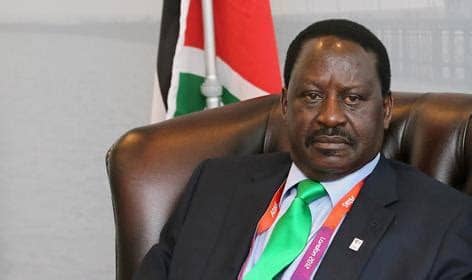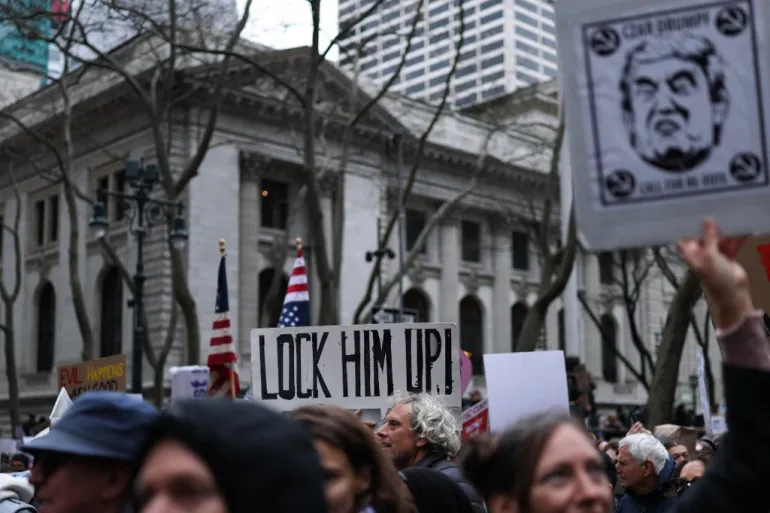When we think about Trump, we have to realize that his narrative is not just the story of one man. It is the story of America, its society, its political culture, its media culture, and the sentiments of the coming age that the Trump epoch represents. Hopefully, The future will reign in the repercussions of his presidency, but this means that citizens should not be disengaged and uninformed as the country proceeds forward.
Introduction
Donald Trump, the 45th president of the United States and the incoming 47th president of the US, stirred many controversies and turned the society and governance of America around. His unusual political biography, various authoritative achievements, and liberal application of controversy characterized him even with real estate to the presidency of the United States of America. As such, this exposé analyses various aspects of Trump's life, including his businesses, political stance, and the many scandals he was associated with.
Early Life and Background
Family and Childhood
Donald John Trump was born on June 14, 1946, in Queens, New York City. The family emphasized important success values, so the young man was groomed for success. Fred Trump Sr., his father, was a real estate mogul who managed to earn a fortune by building affordable housing accommodations in Brooklyn and Queens. Coming from a privileged home, the child was socialized as competitive with drone-like intensity. He inherited it from his family, as his parents always admired richness and prosperity, which became his future goal.
Growing up, Trump did not lack any assertiveness and was once described as a 'loud-mouthed brat'. He was studying at Kew-Forest School, but when he was 13, he was transferred to the New York Military Academy, which let him master the principles of discipline and leadership. The influences of the military and his family business determined Trump's early life perception and attitude toward life.
Education
After starting his education at Fordham University, Trump spent two years there before transferring to the University of Pennsylvania, where he went to Wharton School to complete his education. He graduated in economics in 1968. However, his education at Wharton Business School gave him a fundamental understanding, which he deployed in his business later in life.
Trump, while attending Wharton, was involved in different activities, such as the student body, which helped him gain experience in matters concerning public speaking and charisma. These skills helped him to advance his goals in his career and investments.
Early Career
Following his studies, Trump worked in his father's struggling company, E. Trump & Son. Thus, starting in the early 1970s, he started veering into the limelight by diversifying the family business, beginning with the penetration into Manhattan. His larger-than-life vision brought him some big-ticket projects, but his aggressiveness was appreciated and criticized. His early commissions were a row of private residences, but the refurbishment of the Commodore Hotel put him in the spotlight.
Business Ventures
The Real Estate Empire
In 1979, Trump began his first substantive business operation, namely acquiring and redeveloping the moribund Commodore Hotel in Manhattan into a new Grand Hyatt. This brought the start of his first successful investment in new real estate and was followed by a Trump Tower, which was his signature building. When it was finished in 1983, the building contained both luxury apartments and commercial offices and helped to firmly place Trump in the motivational New York City real estate market.
The organization of Trump's real estate business was somewhat Trump-like, relying on lots of hype and 'celebrity'. He made good use of the media, making sure his projects got adequate media attention. This method of marketing and branding would define his style of doing business.
Branding and Media
Apart from property, Trump made great strides in branding and media. He then came into the limelight after he featured in the reality show The Apprentice, which started airing in 2004. The show established him further into the realm of celebrity while presenting him as a very smart businessman, despite how much it fictionalized things. This catchphrase, "You're fired!" symbolized the billionaire businessman's persona.
The exposure given by "The Apprentice" not only helped Trump diversify his brand from merely real estate. He used his name to endorse Trump Steaks, Trump Water and Vodka. Of course, many of these enterprises were unsustainable, but collectively, they formed part of his persona.
Legal Cases Involving Google Liability
Trump's business experience has always been accompanied by numerous scandals. He declared several business failures in the 1990s and first years of the 2000s, creating concerns about his bad money management. His casinos in Atlantic City, which used to be one sign of his prosperity, became distressed, primarily because Trump filed for bankruptcy in 1991, 1992, and 2004. These bankruptcies sparked many concerns concerning Buffett's ability and solvency in running businesses.
The man has also faced many legal cases through the years, among them fraud charges concerning Trump University, which led to a $25 million payment. His managers and business approach were critically discussed during the presidential campaign as moderately unethical since Trump seemed to bend the truth in business to his advantage, and he was heavily criticized for his ability to turn around debt to his advantage.
Political Rise
Presidential Campaign of 2016
Trump declared his presidential run in June 2015, partly when he formally joined the Republican presidential race. His campaign was quickly spurred by his ability to court controversy with his unapologetic speeches, particularly on immigration, trade, and national security. Trump adopted an independent outsider image that was embracing the change contrary to the political elite, something that most American voters well embraced.
Primarily, Trump's campaign policy was rich in controversial statements, for example, describing all Mexican immigrants as murderers and rapists. This rhetoric gave a certain part of the population which felt ignored by the politicians a voice, and that voice was Trump.
Key Policies and Actions
- Immigration: The two most discussed policies of Trump were related to immigration, and the wall of Mexico was outstanding. The focus of his speech, in many instances, was the need for a clamp on immigration, which he portrayed as a menace to the American community, specifically employment opportunities for Americans. The campaign process saw him tout a slogan of "Build the Wall" He went further and argued that the border wall with Mexico would be built through the help of Mexico paying for it, a pledge never realized.
- Trade: Trump's "America First policy of trade meant that the Trump administration changed the trade policies profoundly. He renegotiated the North American Free Trade Agreement (NAFTA), which produced the United States-Mexico-Canada Agreement (USMCA), and levied tariffs on China to fix trade deficits. His aggressive stance towards China and other partners was to revamp manufacturing in America. Still, it also led to trade wars that had an on-and-off effect on the economy.
- Foreign Policy: Trump's interactions were barbed, unconventional, and defined by populism with no political diplomacy. He made a historic meeting with the North Korean leader Kim Jong Un to make him open the country for international business. Although this was viewed as a brilliant diplomatic strategy to pull a diplomatic coup, critics condemned the move to legitimize a government notorious for human rights abuses. Moreover, Trump pulled the U.S. from several international treaties, the Paris Agreement on climate change and the nuclear deal with Iran, specified that the agreements infringe on the Americans.
Impeachments and Controversies
Trump's presidency was marked by significant controversies, culminating in two impeachments:
- First Impeachment (2019): The House of Representatives impeached the President because he incited foreign interference in the 2020 elections by forcing Ukraine to investigate Biden. The Senate eventually cleared him in early 2020. This impeachment profile revealed increasing polarization in Congress and the antagonistic style of Trump's presidency.
- Second Impeachment (2021): After the 6th January riots, Trump was impeached for the second time for incitement to rebellion. This made him the first president in the history of the United States presidential impeachment to be impeached twice. Although the Senate once more cleared him of the charges against him, January 6 presented many uncertainties in American democracy and the impact of the presidential speech.
Legacy and Impact
Political Polarization
Because of him, political division within the United States has expanded to become one of the country's most significant sources of division today. He is an aggressive leader who publicly opposes ideologies and makes things worse when it comes to social relations between political and social groups. It can only be assumed that these divisions have deepened and have been exacerbated by social networks where Trump supporters and his critics are located in entirely different informational environments.
This division, however, was seen after the 2020 presidential election exercise. Although he lost to Joe Biden, Trump accused the process of election rigging or, in other words, the election was 'stolen,' which aggravated the divisional conflict and angered his supporters.
The Rise of Populism
His success has also caused a populist movement within the Republican Party in America. Bringing such support from the working class, especially in the Rust Belt States, defines new dynamics in party systems and challenges conventional Republicanism. This direction will continue within the party, fueled by the relentless use of political populism, where candidates opt to emulate Trump's style and principles.
Trump has been a Populist, especially appealing to voters who were left out by globalization and technological advancement. Such discontent fueled different movements, and the Tea Party, as well as the emergence of global right-wing populist leaders', is primed.
Media Landscape and Misinformation
Trump has met the media with hostility and has seen him label several stories he did not like as fake news. Through his active and direct messaging over Twitter and other social media platforms, he has revolutionized politics and created a lot of confusion regarding the manipulation of information and the political influence of social media.
Critics and human rights activists worry over his administration's modus operandi targeting journalists, including his previous threats to strip the media of their access passes. Where once antagonism towards the media was exceptional, it now starts people off with a predisposition of distrust that weakens journalism in America and its democratic institutions.
The Future of Trumpism
Former president Donald Trump still influences the Republican party after being out of office. His continued support of candidates and control of much of the party's process leads one to believe that "Trumpism," or the phenomenon of Trump-like candidates and ideas, may continue. The list goes on, but the 2022 midterm elections proved congressional candidates who call themselves Trump-endorsed, making Trump's imprint on the party evident.
Although Trump fights in court and is investigated for business malpractice, he never loses the support of his fans. His rallies, most of which are marked by passionate outbursts. Obedience indicates he has not lost his influence in the American political scene.
Conclusion
Donald Trump's life and career perfectly reflect the relationship of desire and strife for success, which are connected with numerous controversies and impacts. Trump has indeed, within the short time since his rise from the real estate mogul to the occupant of the White House, reformed society and politics in America. As with anything he did, many have celebrated him, and people have vehemently condemned him; however, his legacy will surely linger for quite a while.
Given present and prospective changes in political circumstances, analyzing Trump's presidency is crucial for comprehending contemporary political système Américain. The problems of political polarization, fake news, and the changing dynamics of the Republican Party, particularly in the present, are deep and will take time for the different political factions to analyze and respond carefully.


























